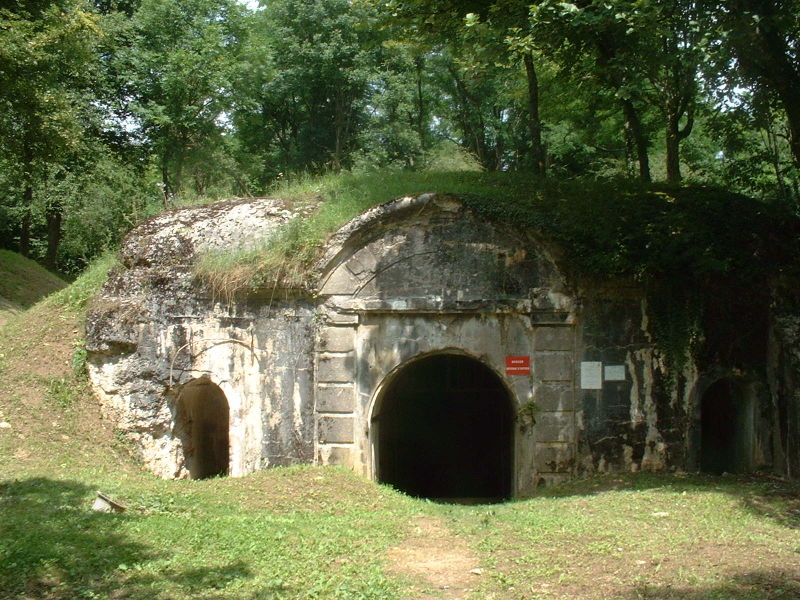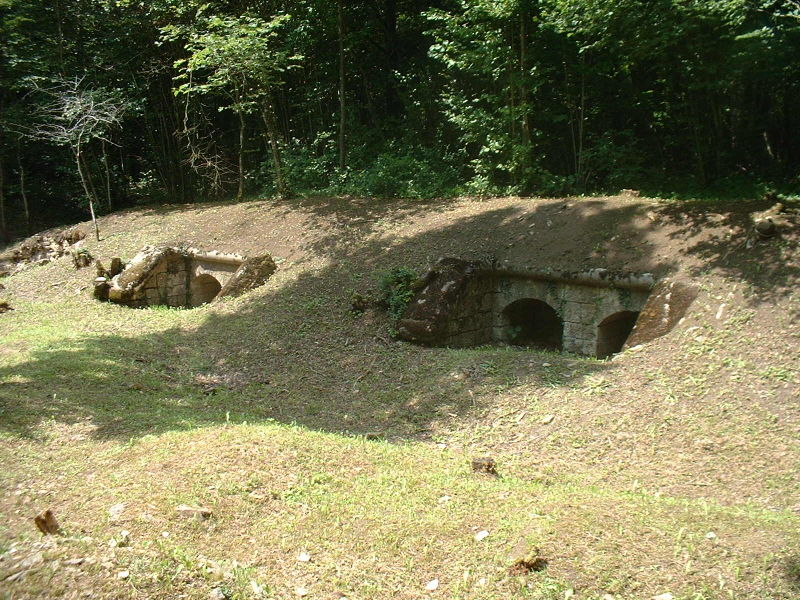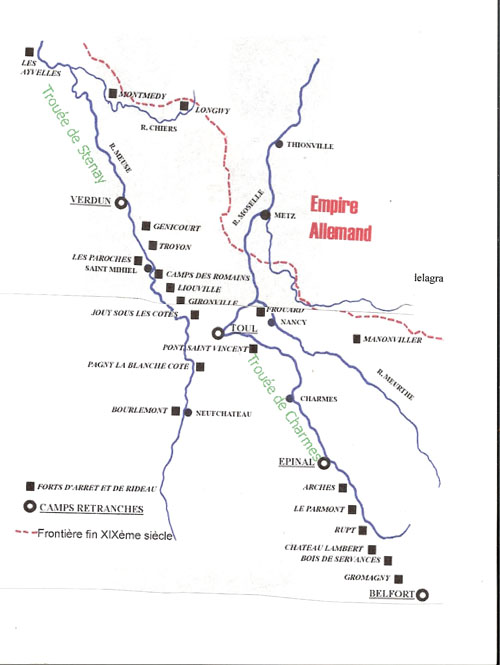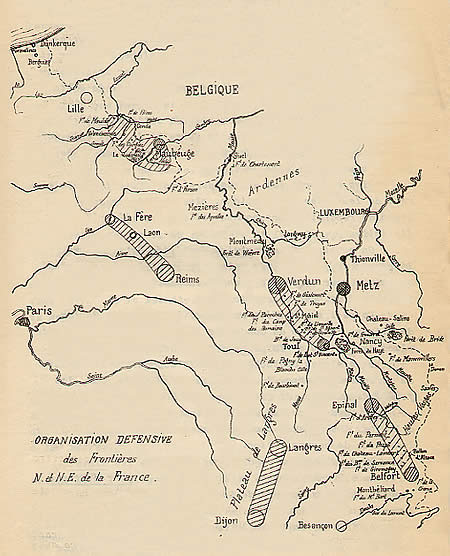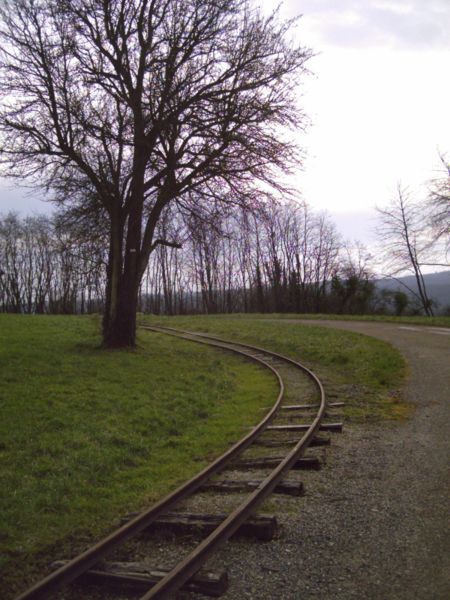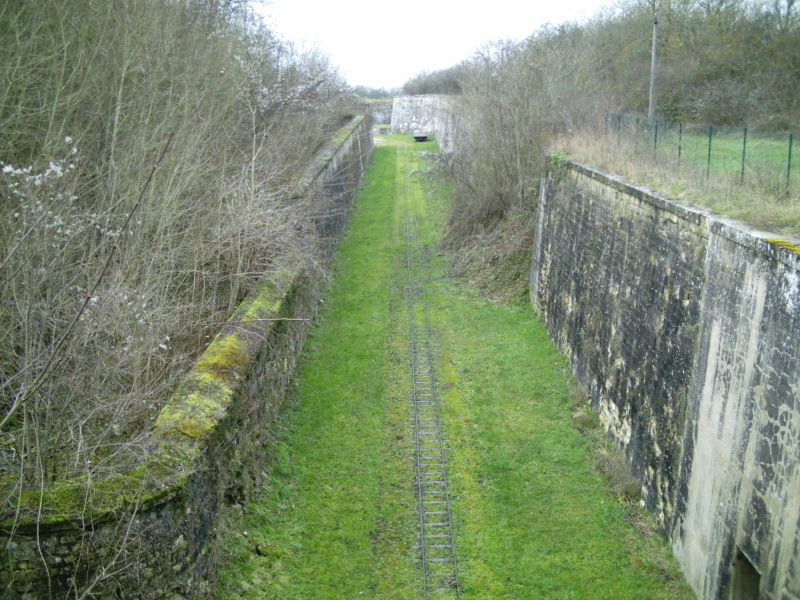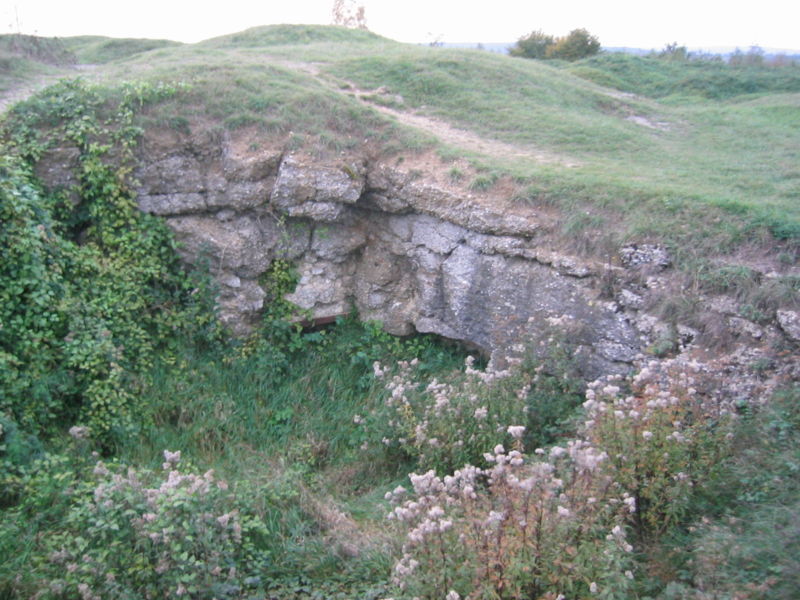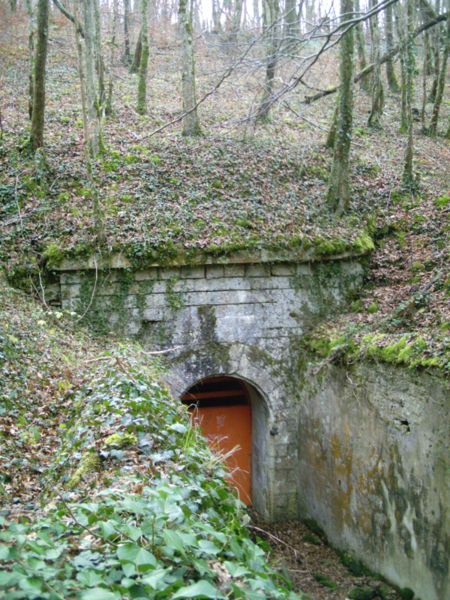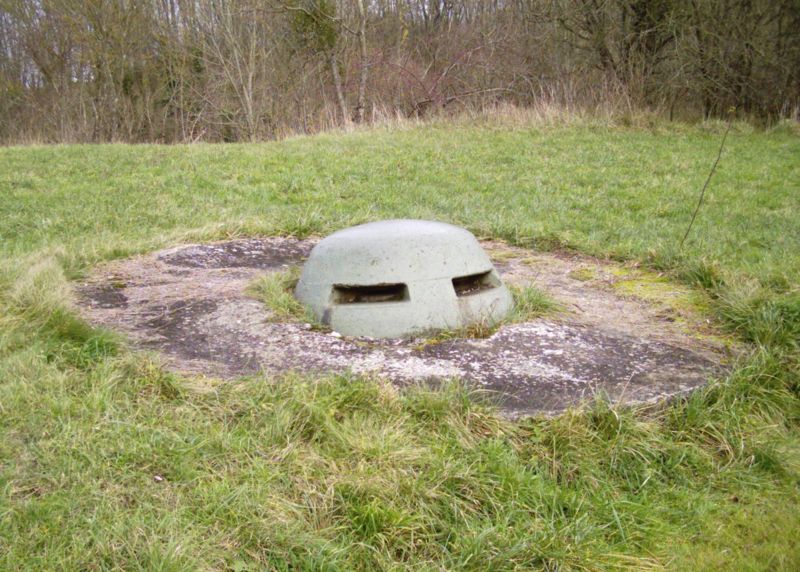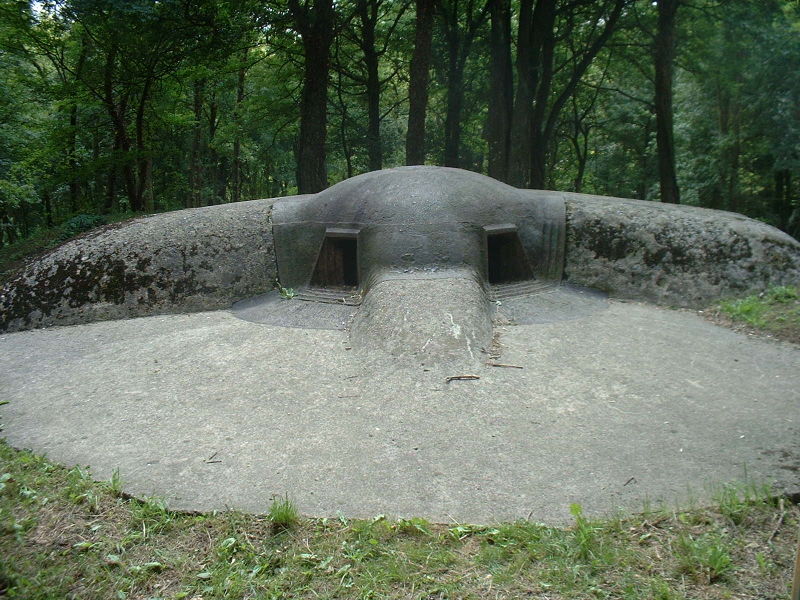
|
||||||||||||||||||||||||||||||||||||||||||||||||||||||||||||||||||||||||||
If everyone, or at least many people are aware of the Maginot Line few people at least in the modern generations can tell you what the name means and put that line on a map So if we are talking about the line of Sérée Rivières, thence few people know and even less can locate the line on the map.
1870 annus horibilis.
But this line of Sérée Rivers has been as important if not the equivalent of the Maginot Line and protected France in the late nineteenth century. It was a line of forts and fortifications that protected 250 km of new borders from the war of 1870.
The Imperial France declared war on Germany in the summer 1870.”It not missing any button on the gaiters and chassepots will do wonders “. The formidable army of Napoleon III must crush the Prussian troops.
Unfortunately it was not the fate And France coming out of this conflict with the new regime The Third Republic.She must stand up to it, which will be very expensive in Humans and financials terms The capital has suffered over the horrors of civil war with the Commune of Paris . It elects at the head of state an old empire Marshal Mac-Mahon who normally must make the transition before the restoration of Royalty. Indeed, the Count of Chambord last heir male to the lineage of Louis XVI refuse the tricolour and he was excluded by the same power. To delay the royalists decided to wear their choice on another character, and thus theb they create the seven-year-term , allowing time to prepare for the possible arrival of a new king to the throne of France, who will accept the tricolour flag. This scenario will fall into the water and the Republic will be proclaimed just before the end of the seven-year-term of the Marshal Mac-Mahon.
The Treaty of Frankfurt was very hard towards France, but under the leadership of Thiers it is recovering and pay compensation quickly to the departure of Prussian troops a little faster than the original timetable. It remained to recreate an new army. This army of the republic will receive its flags at a major ceremony at the Longchamp racetrack. We must make a clean sweep of the past and consider the reason of this biting defeat .Différentes structurals reforms are put in place as the corps of staff officers, the body of Reserve Officers, the involvement of railways in the military life, the search for new materials that will lead by example, the canon of 75. It remains to be concerned about the fortifications which must protect the french territory in the event of invasion.
The natural boundary of the Rhine, which had been that of France until 1871 no longer exists. The enemy occupied Alsace and Lorraine and this change in borders created a space between Belfort and Longwy of 250 km without any defence or break which can protect France from a Prussian invasion
This is a real loophole allowing enemy troops to go to Paris. We must quickly remedy this and a new and fortifical system is crucial to facilitate the operations of mobilization since the system must above all prevent any attack from the enemy, or at least delay to allow time to troops mobilized to intervene Further These fortifications can serve as a starting line for a possible offensive against the territories lost in 1870
A men buckle down to the task . He was the director of engineering work of the army who introduced a report entitled considerations “ the replenishment of the border in the East” It is called Sérée of Rivers. Who was this man? . The General Sérée of Rivers or the Vauban nineteenth century.
This french officer was born in Albi in 1815. He joined Polytechnic in 1835 and shows the rank of sub-lieutenant bill ready to integrate the school of engineering. Throughout his
military career he will never leave this body Indeed all the posts he held between 1839 and 1880 will be all engeneerings posts. Officer involved and conscientiou he became interested in the military fortification of the 19th century. This new Vauban propose that the fortifications were not based on a line of fortifications in the Roman like “Limes” but in a more flexible or a fortified line a strong place command to other secondary places. During the War of 1870 he was stationed in Lyon where he directs with brio operations carried conditions and alert in the city and where he keeps calm. After the war, and load instruct the trial Bazaine ending a 1873 .But thee war of 1870 left France amputated a part of its territory and open a breach in the defensive system french. Between 1873 1874 it calls two reports on the status of a fortified border on the east and is a more general on french defensive system. He is responsible in 1874 to build a line of fortifications to defend France from Dunkirk in Nice. The law was passed in 1874 and provides three main groups of fortifications. The Italian border with the strong place Lyon Nice and Toulon. The group Jura with Besançon. The group vosgien with crude and Belfort. The group Meuse with Verdun and Toul. The group including North Maubeuge and Lille. But Séré de Rivières has a lot of enemies and it was replaced in 1880 by General Cossseron de Villenoisy however, which continues his work. So for a total cost of 450 million gold francs for the stonework and 229 million for arms France is setting up a belt of 196 fors first class 58 small forts and 178 batteries these fortifications play a major role in 1914. The General Séré of Rivers died in 1885 The fortifications. The object of these.
The France of the 2 °Empire has a series of fortress in Alsace and Lorraine putting it in the shelter of a Prussian surprise attack. In addition the Rhine form an excellent barrier to flood its enemy troops. The most powerful strengths are at Metz The city has been fortified in a masterly way by Vauban in the seventeenth century. The myth any citadel fortified by Vauban is impregnable does more to the consideration of the facts. Indeed since nothing has been done. What makes that 1865 fortifications Metz are under enemy fire and could not last long. You should know that since Vauban of artillery had made much progress The range of a rifled barrel gun is for 3000 meters instead of 600 meters common in the Louis XIV days, and the emergence of new shells condemns these types of old fortifications The threat Prussian increase Napoleon III decided to put Metz able to be strong enough to withstand an attack. In 1865 5 major forts are built at 3 km of the city walls. These forts will be receive a garrison mixed infantry and artillerymen. They will have a line defended with bastions for the infantry and artillery,. This bastions could be defend also the ditches. Metz fortifications have not been completed including on the northern flank. Its only role during the war of 1870 will be to collect the army of Bazaine who leaves enclose and do nothing that could tries to harm the Prussians, which in turn surround the Imperial forces at Sedan
On October 27, Metz surrender to the Prussians. With the loss of Alsace and Lorraine and the whole series of forts, France discovers his custody and is rapidly with the loss of Alsace Lorraine, she his vulnerable It seeks a remedy quickly. The july 28 th 1872 by presidential decree was set up the fortifications committee consisting of nine members, of whom Séré Rivers was appointed secretary. On February 1st 1874 he was appointed head of the engineering department of the Ministry of war. He is the head, and then embarks on his first duty Works began in 1874 and 1880 when Sérée Rivers was dismissed the work is well advanced.
The general builds on ideas of the Marquis de Montalembert (1714 1800), which provides engineering french fortifications with perpendicular lines posted strong who can cross their fire. Séré of Rivers proposes a new line of fortifications or by creating from a to z (ab nihilo) forts, or by correcting and improving the olds Vauban fortifications. The fortifications type Sérée Rivers is a big reduces separated by a deep gap of 6 m and a width of 12 metres around flanked by caponnieres. In this type of fortification it is rare to find water ditches. Walls are steep towards the interior and against steep towards the outside. Sometimes there are crenels to beat the ditches
We find the abandon of the principle of bastion become obsolete due to the increase in power of artillery to reach for a form of polygon surrounded by ditches covered by fire flanking book called caponnieres who are really that a bastion evolution. They are simple with one direction or double shooting In entering these strengths are constructed using masonry stone for a bridge (normal bridge or obliteration bridge ) The fortifications are covered with a thick layer of earth to protect against fire from enemy artillery .
They are organized around a buried barracks which houses the garrison with a large inner courtyard. Infantry is the only crew of the fort and it is used to defend the immediate access. It has to do so positions infantry specially equipped to fight pits and close access
The fort has its own supply of food, to live in autarchy for three months. Premises are ventilate and early lighting is provided by candles or oil lamps. The lighting of bunkers being provided for its part by skylights.
The artillery of the fort long or short range is placed in different places or going in the open air on top of the fort; They are positioned on platforms framed tie shelters, which contain necessary to fire They communique with the fort when either directly on the barracks (fort cavalier) evening by a walkway or bulwark street Thereafter some guns after 1885 will be housed in stone-reinforced bunkers or armoured (type Mougin) First forts were armed by 95mm Lahitolle Mdle 1875 guns and then from 1880 by parts of Bange system including 80 guns and 90-mm with a range of 7 kms and finaly by the 120 mm gun range 11 km Soon we will see these strengths armed with pieces of 155 mm mortar and heavy de120mm which had a range of 10 kms The powder magazine includes storage of all explosives at the fort. It is built to isolate as much as possible the shield from their mortal enemies : humidity and flames Covered by hearth isolated from the rest of fortification by two doors with security locks powder magazine was lit by oil lamps with armoured glass which were stored outside the powder magazine 'For the fortifications Sérée Rivers we find three types of construction. 1 ° forts arrest These are isolated structure designed to cut the lines of communication to delay the enemy advance to allow time to the armies tu go together .Ils are sentence to a reddition once their "work" done. 2 ° Curtains forts It is a fort alignment that can be mutually supportive in order to form a defensive curtain. 3 ° strongholds. Point support of the army these strongholds surrounded by a ring of forts act as "attic" for the military campaign. However in 1885 when the new shell called torpedo this is the term that line of fortifications that the Germans had called the "iron gate". Ultimately the curtain defense of France based on a strong line with a series of junction between two strongpoints, and a series of forts that must stop (as explained above) controlling the crossing points and sensitive targets, plus a coastal batteries series . We can cite the defensive curtain of the Meuse between Verdun and the high of Moselle between Belfort and some forts as Manonvillers (Meurthe et Moselle), and in the Vosges Bourlémont The network of defensive fortifications on the ground.
Proposals for Séré Rivers etains resulted in the creation of four camps Verdun Toul Épinal and Belfort, based on the lines of those existing around Paris and Lyon Langres. All cities chosen were important railway junctions only Épinal had no fortification and the work was never done .These strong points were brought together by the liaisons forts that can lean each other in order to build the network defensive ..
At the rear of the forts we find a whole series of buildings that are linked to each other and at strongpoints (who possess the central warehouses of food equipment and ammunition) by a vast network of rail military 60 mm rail way Pechot system adopted in 1888 All along the railways we find deposits intermediaries ammunition supplies to troops intervals
The first defensive network consisted of a line of fortifications established on the heights Top of the Meuse. All forts were built on the right bank of the Meuse except one. They rely on each end of the line on the strongpoints of Toul and Verdun It is obsolete? How? Why. ?
In 1885 France has build 400 forts when appears an new explosive super powerful the mélénite The menelite his an chemical exposif which allows the explosion of the shell explode after penetration in the cladding. The forts are now not immune to this type of shields (Torpedo shell )
But what's torpedo shield. ? The War of 1870 was the emergence of new matériels.Il should know that it was during this period that researchers are trying to find a successor to the black powder. Indeed gunpowder well if it causes fragmentation of the envelope of the shells and brutal expulsion of the balls contained in the shell shrapnel type is not powerful enough And the addition of a rocket does not resolve the problem A much more explosive breaking is therefore essential to get a wreath more effective than the old shells bullets while adding a blast effect to the projection shrapnel Tests took place in 1849 upon dynamite and potash (ammonia pitcrate ) but they were unsuccessful. The discovery of dynamite in 1867 marked a major step forward indeed Nobel has succeeded in reducing the danger posed handling nitroglycerin by absorbing the product by a porous substance. But this new explosive could not be used for unedited loading shells because it occurs at the start of the coup shine called in french inertial effect of roch And it was not found a suitable device to cause an explosion of the projectile on the target. The Germans through an artillery officer named Helhlof embark on a way that offers a mix detonating where the oxidizer consisted of the nitric acid and fuel in a special hydrogen But it is necessary that both parties are in two separate reservoirs if there is a risk of explosion. The mixture is done only after the departure of the coup. Explosion is obtained by a rocket cap that works at the impact. The projectile is developed around 1881 is experimented with guns calibre 78.5.mm Studies continue for the Model 150 mm howitzers results are considered conclusive tests were conducted with 210 mm shells. German Conclusion The existing fortifications did not resist a prolonged bombing As a result of these experiences we realized that the artillery pieces positioned on the strengths could not be used in case of massive bombing of the opponent, therefore they should be put under bunker The new make a bom effect and soon the french headquarters tried to replicate Some have even suggested shells containing swarms of bees in the body of the shells which would be released at impact and allegedly attacked the enemy infantry. Another inventor Another offered to fill pepper shells It was in 1885 that an French industrial of rubber toy Eugene Turpin found the solution by using acid picrite to create the mélanite. He filed the patent and the impact of the emergence of the new explosive is enormous. The use of these shells with the new types of cannon will multiply destructive efforts. The French army decides to carry out tests on fortifications. In 1888 the Fort Malmaison (Chemin des Dames) is subject at a bombing. The shells fired by pieces of 150 mm and 220 percent they destroyed masonry vaults and raise the massive earth. 10 metres are now needed to protect a structure. The surprise is enormous, and a question arises Séré Rivers network brand new it is obsolete or not? Not because the reinforced concrete will save this line of concrete fortifications This is a special reinforced concrete fortifications allows more resilient. He was known for engineering services but little used because expensive and difficult to work But how proceed?
Three options will be used. The decommissioning of the fort. Fort in status quo. Strengthening the existing strong employment with concrete and buried a greater depth of the sensitive organs such as the powder magazine who his one of the essential element of the fort
To avoid a catastrophic explosion for the fort the powder mazine is split into several entities and most importantly, it is buried deeper New stores powder are called stores under rocks or caves stores. The superior blockhouses also suffer changes with the addition of concrete and even the barracks masonry is downright replaced by a concrete barracks army built behind Only the facade is retained. The caponnieres are deleted in favour of coffer of counter escarp. These works are included in the wall counter escarp and are connected to the fort via underground passing under the ditch. Access to the forts were rethought and modified and entrances of war are sometimes in the thoroughly of the ditches .
The crew of the fort is also protected as it benefits from bells armed with machine gun, projectors and observatories. Finally supreme comfort apparition of a autonomous power station .Face of increasing the power of the artillery the question of the protection of guns by breastplates his also brought
Indeed arming later we are witnessing the disappearance of the pieces on the wall replaced by guns on bunker or in armour dome The number of guns decrease but the power remains the same. The problem had already been raised in 1874 and but had not been resolved. In France it was the captain Mougins who tackling the problem by proposing in his famous 1877 turret.
The turret Mougins.
It is a platform of six meters based on 14 iron beams bolted on a pivotal two-metre high and 30 cm in diameter. Above beams are fixed amounts of two meters high plates connected to closing the envelope. There are moving parts especially in the face of the breech to handle it during the shooting or changes tubes The weighs of 40 tons allows the installation of a 155-mm cannon type Bange This gun takes place in a turret 150, which is hydraulically driven via a winch operated by two men who are in the lower deck but is difficult to put into position ( problem of amplitude in the movement that requires regular corrections ) For punches in site is provided by trunnion and on the tube is fixed protection which protects servants for enemies shrapnel shells. For the firing provides an ingenious system allowing the fire when the room is pointing to the target system using a cursor. In 1880 the first armouring are mounted with 138 mm cannon Reyffe but they were quickly supplanted by breastplates of a new model with 155-mm guns. In fact the turrets in”hard” melting were vulnerables shells, which causes the appearance in 1882 of a special steel developed by Schneider. This special steel is mounted on a turret Bussière. These are turrets to eclipse that didsee at the enemy only heavily armored “skullc ap”
But it is an outsider who won the competition with the turret of Captain Galopin which is a fearsome looking but unfortunately very expensive version of Twin
Considering the price it is a single-developed and developed in 1905. There were also slightarmourd tailored to protect the teams observations with booths or bell armored protection, as well as projectors and eclipses turrets infantry hosting small guns or MGs including the turret with a 75 mm gun who 'equip thereafter the Maginot Line. Conclusion Fortifications rebuilt after 1885 will suffer, however, budget restrictions and will not be fully modernized. All the modernisations or constructions arre minimised including the wall against steep normally in masonry replaced by an earthen embankment with a grid at the bottom of the ditch Some parts of the old fort were abondonned. These forts will be used during the First World War ¨ they will suffer assault of German troops and often play their role
They will indeed be modified during the war including soldiers digging network of tunnels under the fort and used as a barracks. They also amend the access to the fort which are more backward and less exposed, adding combat blocks with shields light machine gun for this work named travaux de 17 (works of 17) because make in 1917
The General Séré River was a visionary and his fortifications belt has saved France during the First World War
For more information click Here |
|
Droit d’auteur La plupart des photographies publiées sur ce site sont la propriété exclusive de © Claude Balmefrezol Elles peuvent être reproduites pour une utilisation personnelle, mais l’autorisation préalable de leur auteur est nécessaire pour être exploitées dans un autre cadre (site web publications etc) Les sources des autres documents et illustrations sont mentionnées quand elles sont connues. Si une de ces pièces est protégée et que sa présence dans ces pages pose problème, elle sera retirée sur simple demande. Principaux Collaborateurs:
Nb
de visiteurs:8808946 Nb
de visiteurs aujourd'hui:433 Nb
de connectés:69
| ||||||||||||||||||||||||||||||||||||||||||||||||||||||||||||||||||||||||





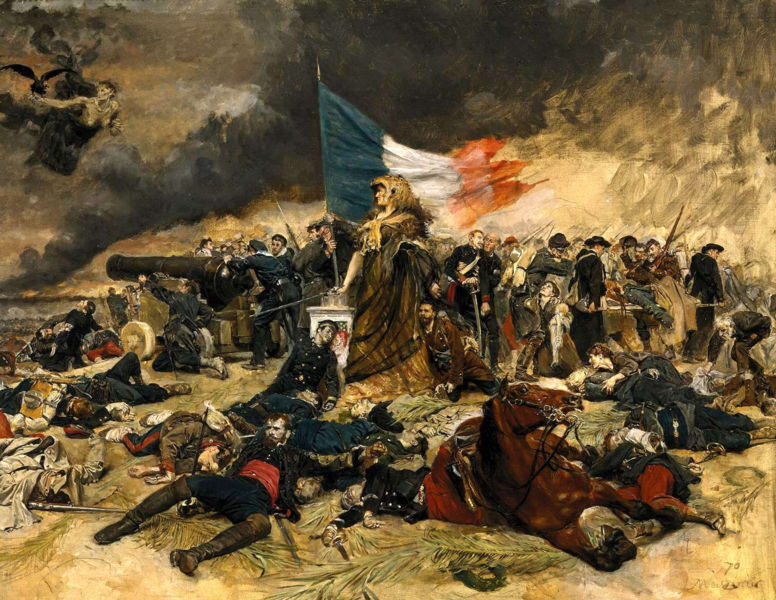
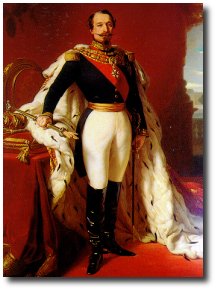
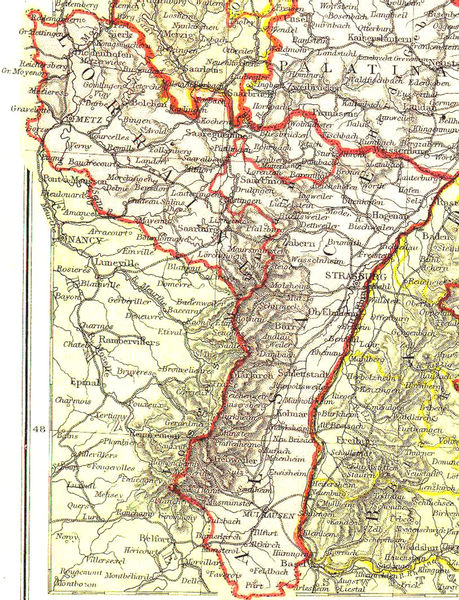
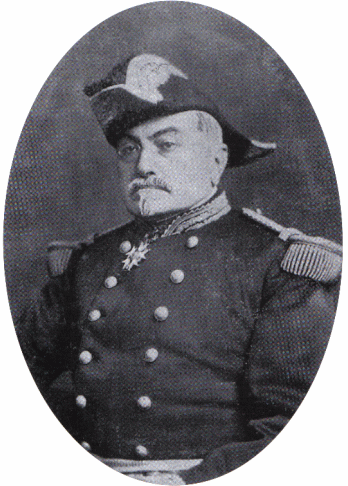
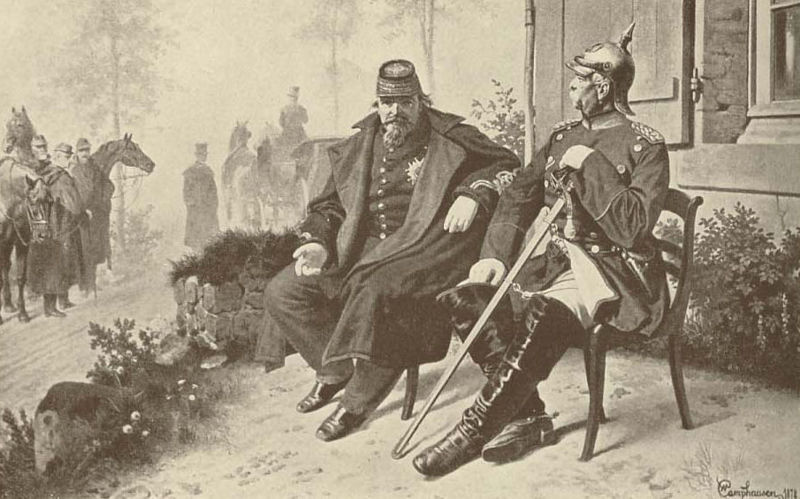

.jpg)
